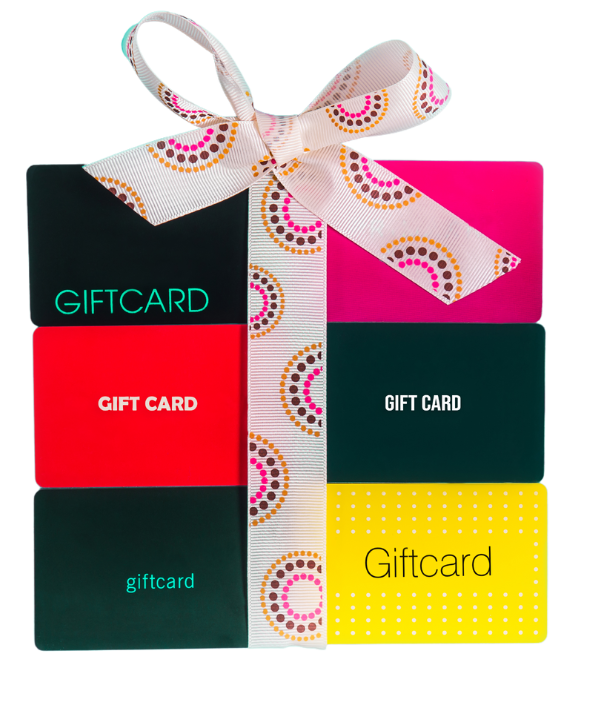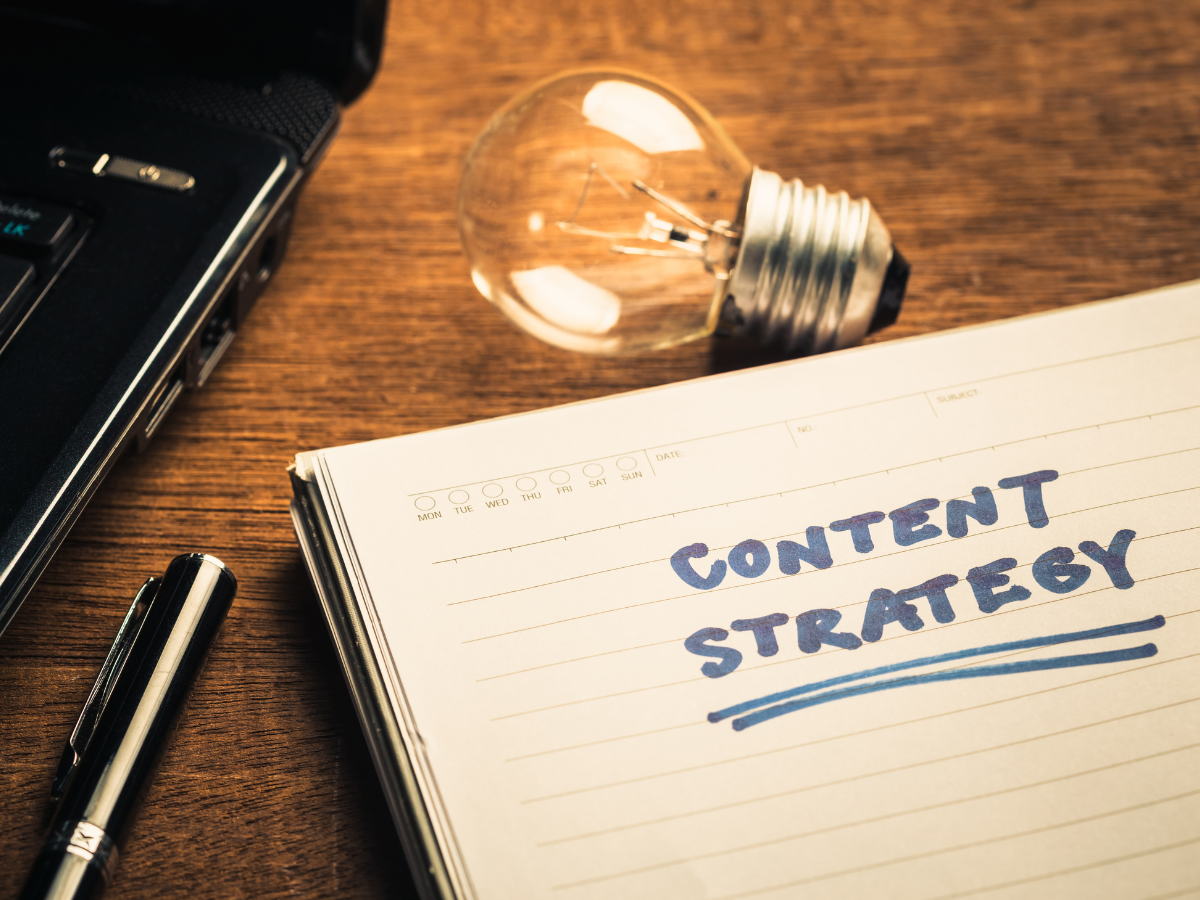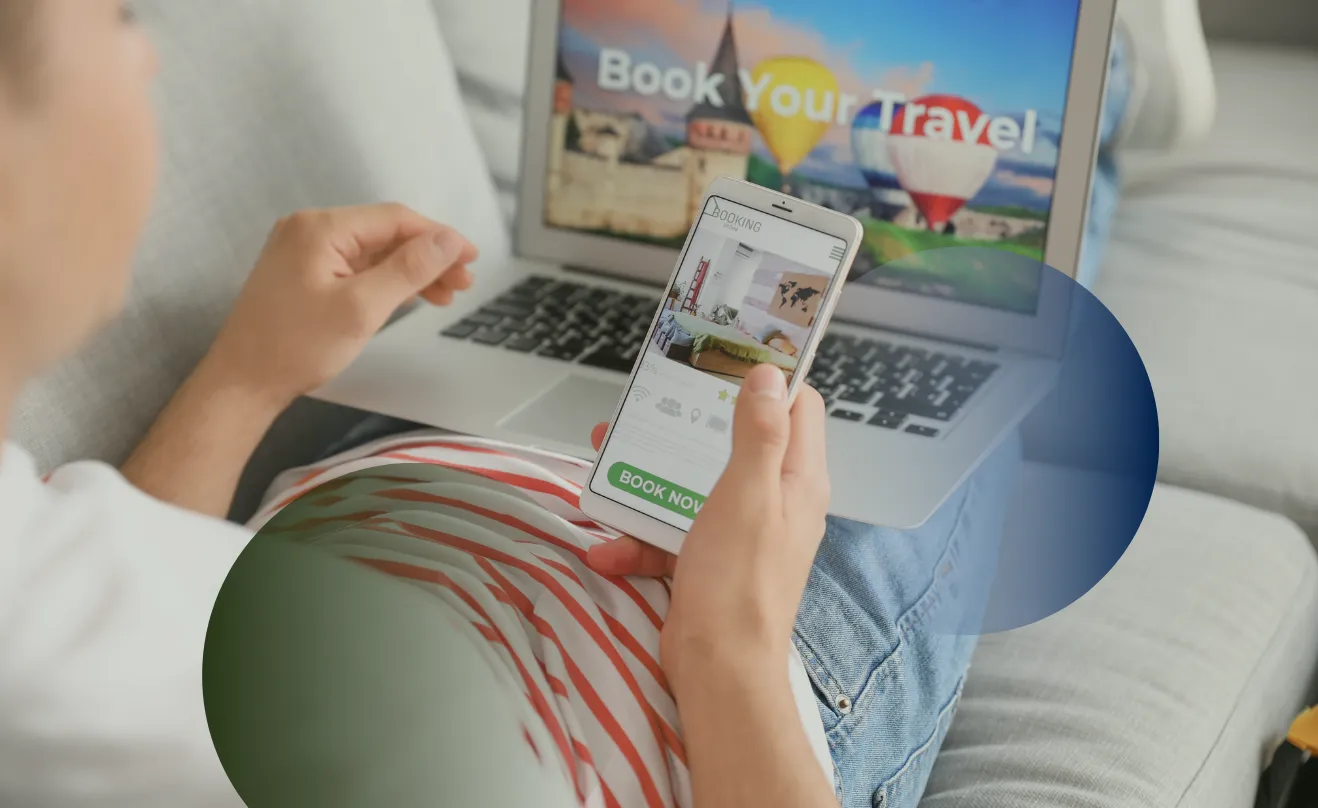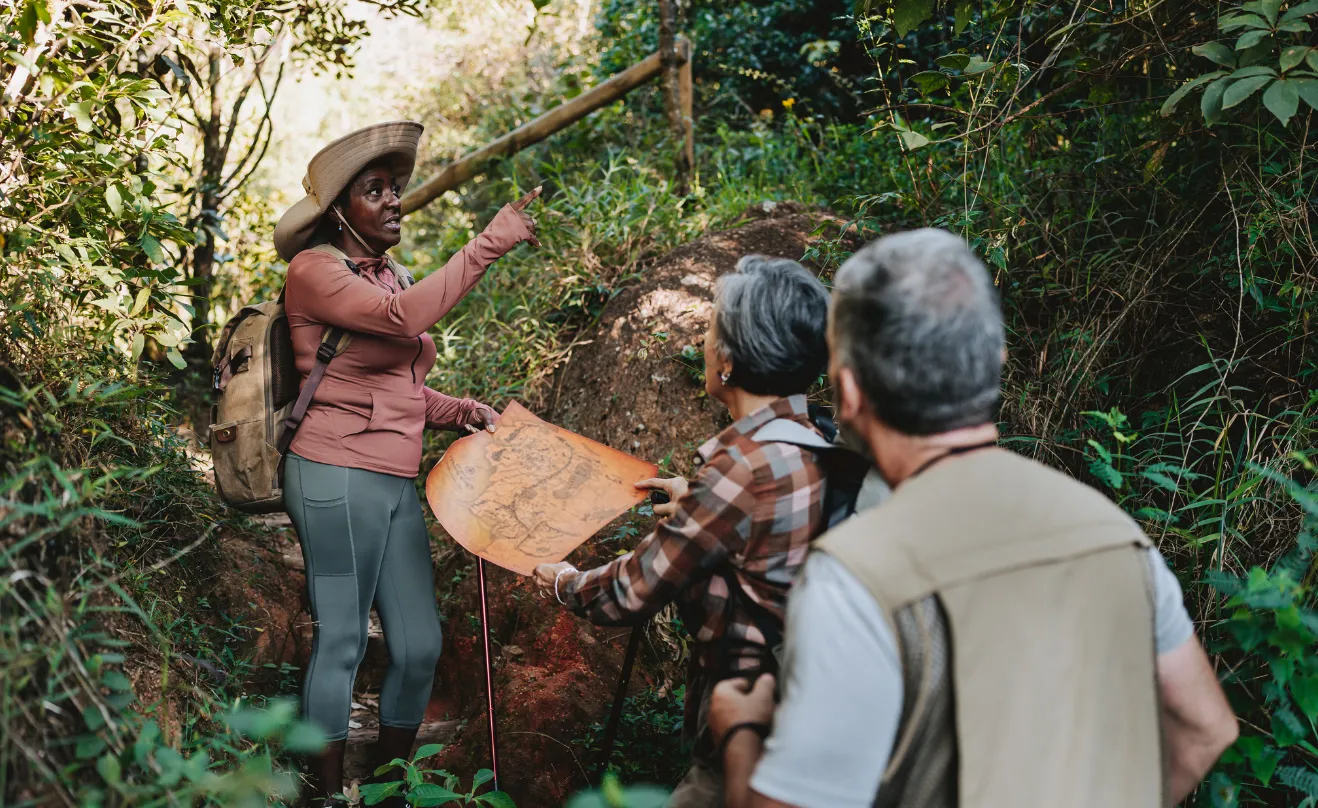Off-Season Marketing Strategy For Tour & Activity Operators

Seasonality is an inevitable aspect of tourism. A busy season followed by a quiet period is something most tour operators expect to happen. But it doesn't mean that you should struggle through your slow season.
As operators are not busy entertaining guests, it is an ideal time to work on their marketing strategy. Tour and activity operators shouldn't miss lucrative opportunities to optimize their marketing strategy during the low season.
Here, we have a few slow-season marketing ideas to help you generate revenue during the off-season and get an edge over your competition during the peak season.
Promote Tours to Locals
With fewer international travellers visiting your destination during the off-season, you can focus on promoting your tours to the local crowd. The pandemic has changed domestic tourism, with people discovering they have a lot to explore in their own backyard. Many locals might be keen to visit the local tourist attraction when it's free of international tourists.
Offer special offers and other incentives to locals to encourage more bookings. You can set special weekday and weekend prices for your tours or even create a locals-only discount. Also, use this opportunity to promote some of your less popular or unique activities that might interest locals you have already visited the main sites in your destination.

Organizing local community events can also make your brand name popular and lure travellers. Consider collaborating with non-profits in the community and organizing a charity campaign. This gives you an opportunity to give back to the community. While you help the NGO and promote their cause, people get familiar with your brand name and may become your guests in the next season.
Gaining loyal domestic guests during the off-season also gives you good word-of-mouth marketing, which will bring more guests in the future. They won't hesitate to recommend your tours and activities to seasonal guests (approval from a local is always a badge of honour!). With your tours being accessible throughout the year for locals, the chance of getting repeat business is also high.
You can also offer FAM (or familiarization) experiences during this time free to local agents with whom you are looking to partner. This will help them learn about your products and makes it easier for them to recommend you to their guests during peak season.
Promote Gift Cards
Gift cards are a significant revenue source for the low season. When a customer buys a gift card from you, you get the money right away. You don't need to wait for the receiver to redeem the card. It means instant revenue and a boost to your cash flow.

Even if you don't offer any tours or activities during the holiday season, don't hesitate to promote gift cards. You can tap into Black Friday shoppers and last-minute Christmas shoppers, encouraging them to buy gift cards for their loved ones. You can also advertise gift cards as the best pick for all special occasions—birthdays, anniversaries, celebrating their honeymoons.
Keep highlighting the gift card option on your homepage with a clear call to action on how to purchase them online. As we always say, promote gift cards on your social media. Create interesting social media posts about gifting their loved ones with experiences. You will be surprised to see how a compelling message on social media can change the minds of shoppers.
An online booking system makes it easy to sell gift cards through your website. Customers can easily choose the tours or activities they want to buy as a gift. And the gift recipients looking to redeem their activity just need to click through from their email, select their desired date, and check out. For example, Zaui online reservation system allows customers to buy gift cards for a specific tour/activity or a precise monetary value.
Explore Possibilities of New Partnerships
As you may not have many in-destination travellers during the quiet season, partnerships with local businesses can be used to drive locals to your company.
Like the peak season, one option is to form a strategic partnership with other tourism businesses to create enticing tour packages that reel in customers. However, this time, tweak the packages catering to the demands of the low season.
You can also explore partnerships with entities other than tourism operators (think of local restaurants, pizza shops, or cafés). They can promote your tours to local crowds too. Maybe, you can offer their customers tours at a discounted price or ask them to keep your brochures at their shops. However, it would be best if you made sure that there are similarities between the target audience of both your businesses.
This downtime can be the ideal time for you to explore the possibilities for future partnerships with fellow tour operators. Other tour and activity operators in your destination, just like you, are often the go-to trip planners for in-destination travellers. Talk to fellow operators and devise strategic partnerships to get more bookings and word-of-mouth referrals.
Optimize Content Strategy
The hiatus during the low season can be used to brush up on your content strategy. Look at your current content marketing and analyze what type of content drove more traffic to your website or got you more bookings.
Ensure that your website, social, and blog cater to those looking for trip ideas during low season, increasing your chances of getting discovered on Google Search. Use your content to show potential visitors unique travel opportunities and what the experience is like during the off-season.

Remember, a group of travellers likes to avoid busy tourist spots and crowds. They don't mind travelling to destination attractions during the low season. Strategically marketing can drive these travellers to your destination.
If you have a blog section on your website, update and add new blogs. Adding blogs to your website keeps your website active, and Google Search always favours an active website.
Engage with your customers by being active on social media too. Keep creating content that makes them dream about their next vacation. Make the best use of user-generated content and customer reviews to build momentum around your tours.
Continue Email Marketing
The peak season may be over. Still, it's vital to nurture the relationship with your customers and those who showed interest in your business but have not booked yet. So, never stop those thoughtful newsletters of yours. Amping up your email marketing can also reengage some of your subscribers. As there is no influx of holiday and seasonal offers, your emails may get noticed.
After the peak season, you have your usual email campaigns, such as customer surveys, thank-you notes, and review requests. However, you shouldn't limit your email campaigns just to that.
Design some campaigns highlighting the benefits of travel outside of the peak season. (be honest; if your tours are not meaningful during the off-season, it's better not to promote low-season travel. It may do you more harm).
The email campaigns during the off-season can also be used to build up excitement for the peak season. Include testimonials, pictures, and videos of the guests enjoying your experience. It keeps your brand top of their mind when they are ready to travel. You can also promote early access sales through email marketing.
Final Word
Before you jump on to any marketing initiative, you might need a well-deserved break. After unwinding, you can start planning for the next season. Analyze your KPIs and previous marketing campaigns to get the ball rolling on your next season's strategy. And make sure you have seized every opportunity to get bookings during the off-season.
It is also vital to evaluate your operational requirements. If you are still on a pen-and-paper system, or your online booking system failed to reach your expectation, it's the perfect time to look for a new one. We can help you with your research.
Our Buyer Guide for Tour Operators maps out the essential steps to take and the critical questions to ask as you search for the best online booking system for your tour and activity business. You can get your copy here.
Even better, you can talk to us!
Take a look at our website, hear our customer success stories, and if you like what you see and want to know more about how Zaui can help you, we can give you a tailored demo for your business.
Related Posts

Zaui’s New Booking Policy Toolkit: Flexible Cancellations, Smarter Revenue Protection
Should you add a booking fee? Discover how this strategy can impact your revenue and customer satisfaction in our expert analysis.

Passing Booking Fees: A Smart Revenue Strategy or Customer Turn-Off?
Should you add a booking fee? Discover how this strategy can impact your revenue and customer satisfaction in our expert analysis.

How to Start a Tour Business in 2025: Practical Guide
Starting a tourism business is an exciting journey into a landscape full of potential. Travellers are always looking for new adventures, and there is no shortage of niches to explore in the tourism industry. The question is: how do you carve out your place in this vibrant sector?


Frequently Asked Questions
No. Zaui’s pricing is fully pay-as-you-go. You aren’t locked into any long-term contract. In fact, leading platforms emphasize this flexibility. Similarly, Zaui lets you start and stop anytime. You can change or cancel your plan freely, so you only pay for what you use.
Absolutely not. Zaui’s pricing is 100% transparent. We disclose all fees up front with no surprise add-ons or “sneak-in” charges. In fact, Zaui’s plans include all core features “without additional fees”. Industry experts note that hidden fees undermine trust so we avoid them entirely. All costs are clearly outlined in our pricing, and there are no extra setup charges or undisclosed surcharges at checkout.
Zaui integrates with major payment gateways (e.g. Stripe) so you only pay standard credit-card processing rates (roughly 1.9%+$0.30/transaction) and we don’t mark them up. Only the published platform commission is added on bookings. You also have full control over who pays the commission, we let you decide whether to absorb booking fees or pass them on to customers. In short, you’ll only pay the transparent booking commission and normal gateway fees, nothing extra.
Your onboarding and support are included in the price. We provide white-glove setup help and ongoing 24/7 support at no additional cost. Our dedicated customer-success team will guide you through every step, ensuring a smooth launch. You won’t pay extra for training or service other than the onboarding fee; it's all built into your plan.
You can schedule a free demo with our team. Our Zaui ninjas will walk you through pe how Zaui can work for your business and highlight opportunities to grow with our advanced features all without any upfront payment. This way, you can feel confident it’s the right fit before making a commitment.
Of course. Zaui’s plans are fully flexible. You can upgrade or downgrade at any time to match your needs, without penalties. You can move to a higher tier or back down easily, and your billing adjusts automatically.
No. Zaui does not charge its commission on offline/manual bookings. “No fees on offline bookings” You only pay the commission when a booking is processed online through our system. Manual reservations (or bookings from partner channels we set up for you) incur no extra platform fee. (30% or less)
All of Zaui’s core features are included in your plan at no extra charge. We believe in value and transparency: Zaui provides over 15 advanced features (Google Things to do, reporting tools, marketing tools, reports, etc.) at no additional cost. Many competitors charge extra or require higher plans for the same features, but with Zaui you get the full suite of tools in one package. Any optional add-ons (if any) will always be clearly listed and optional there are no surprise paid upgrades for standard features.
Each Zaui plan is designed for clarity and fairness, following industry best practices. You can trust that our pricing is transparent and flexible, with the support you need built in.
Extra accounts- unlimited agents, resellers, user



